Here are 10 essential and Best Tips for Gardening in Extreme Heat! Follow them to keep your plants safe from sunstroke.
Do not let the scorching sun take away the health and appearance of the plants in your home and garden. Here are some of the Best Tips for Gardening in Extreme Heat!
Look at the Best Heat-Loving Plant Combos for Containers here
Best Tips for Gardening in Extreme Heat
1. Keep Plants Well-Watered
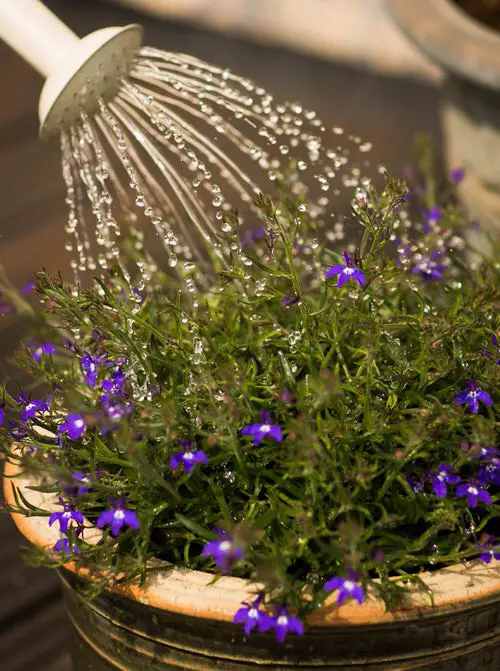
According to Erica Chernoh, Oregon State University Extension Service horticulturist, keep the plants well hydrated and water in the morning so the plants get enough time to absorb moisture before harsh day heat.
You can also water them again in the evening if the temperatures are too high in your area. The trick here is to water the plant deeply and thoroughly to ensure the growing medium stays moist all time for a long.
Potted and hanging basket plants need to be watered regularly as compared to those on the ground. Check the soil moisture by sticking a finger in the soil.
Learn How To Water Plants + 5 Watering Mistakes You’re Doing here
2. Choose Plants that Love Heat
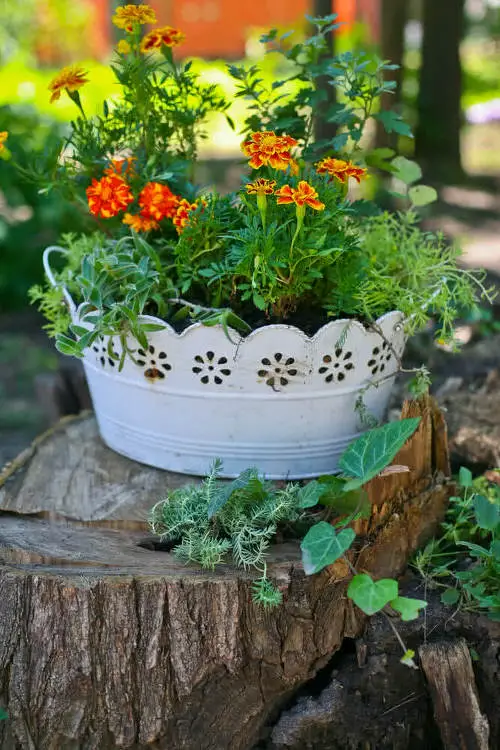
It is always wise to go for plants that love heat and do well in direct sunlight. Native plants are also a great pick in this regard.
Marigold, Petunia, Coneflower, Moss Rose, Hibiscus, Stonecrop, Vinca, Bougainvillea, Lantana, and Zinnia are some of the most beautiful choices you have for a warm environment.
Find out the Best Heat-Tolerant Flowers here
3. Use a Shade Cloth
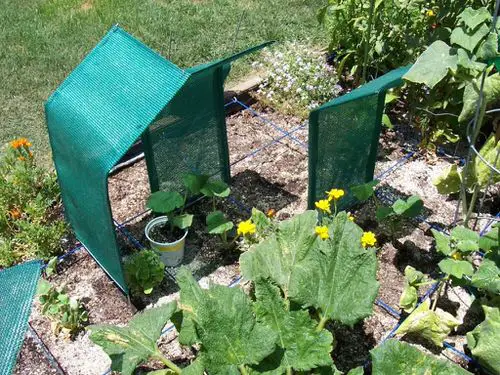
Shade cloth is mostly used in hot and dry climates to protect vegetables and other plants in the garden from intense sunlight. You can easily get it from a garden center or buy it online.
All you have to do is to install a frame or tie it around a plastic pole or bamboo stick in the garden to allow shade for the plants in the afternoon.
4. Mulch
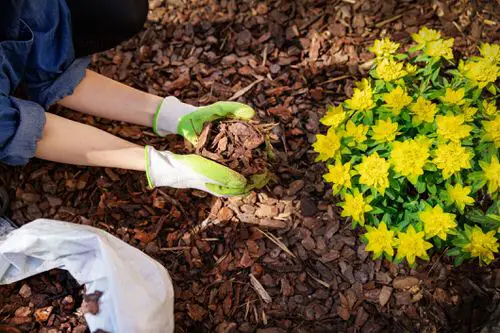
Use biodegradable materials like straw, decomposed manure, or compost for mulching around plants. It is one of the best and most organic ways to slow down evaporation, saving the moisture in the soil in the intense heat.
2-3 inches of mulch will be enough for the growing season. Do not add wood mulch with fine particles on the top layer of soil as it will drag nitrogen from the soil while decaying.
Learn about Using Pine Needles for Garden Mulch here
5. Avoid Growing New Plants During the Heat Wave

Avoid planting when the heat begins during the peak summer, or the region experiences a heat wave if you’re not living in a cold climate. Plant shrubs and trees in fall to give them a head start before they get exposed to higher temperatures.
If you want to start new plants, then it would be a great idea to check out the forecast and look for cloudy days before you proceed.
6. Don’t Stress the Plants
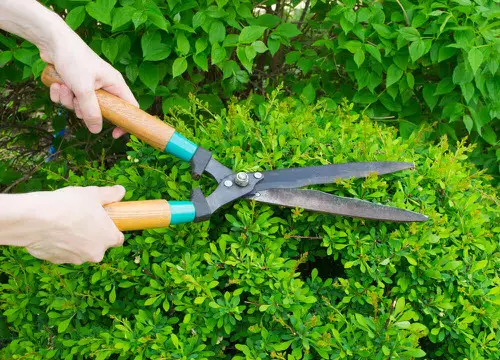
Plants get vulnerable to diseases and other environmental factors when you prune and transplant them in unfavorable conditions. It is best to avoid doing these things during the heat wave.
A bushier growth will automatically trap moisture, protecting them from extensive exposure to heat. Keep the plants well watered during the hot months.
Find out the Best Heat-Tolerant Flowers here
7. Amend the Soil with Organic Matter
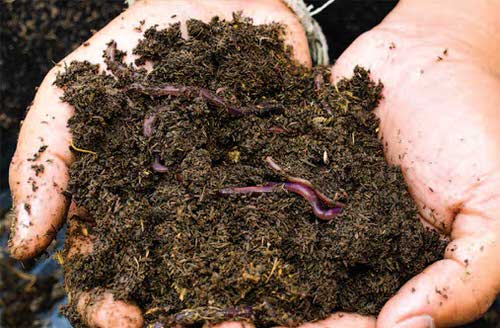
Depending on the soil type and climate, about 6-10 percent of organic matter can help hold moisture in the growing medium for a longer duration of time.
Also, healthy soil with beneficial organisms, like mycorrhizal fungi, aids plants in withstanding drought.
Learn the Best Hacks to Improve the Garden Soil for Free here
8. Move the Position of Containers
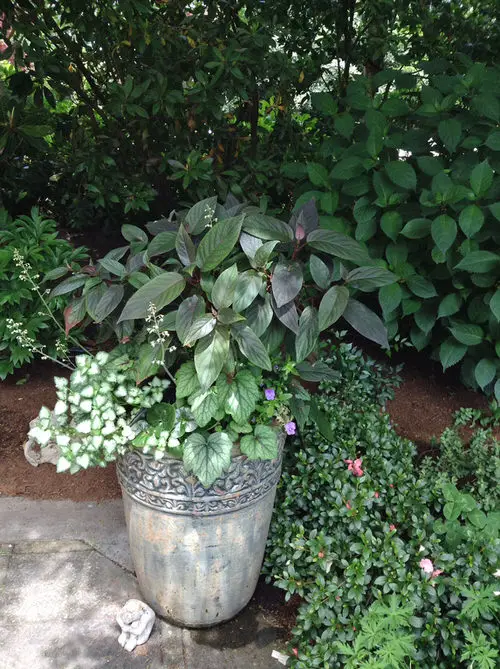
If you have kept the containers in the garden that gets sustained direct sunlight for the most part of the day, then it would be a good idea to move them to an eastern or shaded location, where they are safe from the harsh afternoon sun.
If you have a west or south-facing balcony, use shade cloth or bring the pots indoors in the afternoon.
9. Use Other Plants as Protective Shield
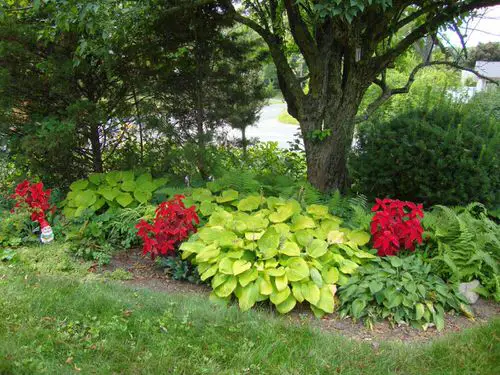
While planting in the garden, make a plan according to the heat wave. Growing plants like hostas under the shade of a tree in the garden will keep them safe from the direct sunlight in the afternoon.
Sensitive plants can wilt and burn in direct sun, and growing them under the shade of mature plants is a clever way to protect them.
Find out the Best Walkable Ground Covers here
Bonus – Make a Water Trench Around Shrubs and Trees
A little water trench or a water body around the plants in the garden will not only help to keep the temperature cooler by a few degrees around the plants, but it will also keep the surrounding soil moist, which is a big plus in heat waves.
This way, your plants will get all the needed moisture, helping them thrive in the summer and heat months!
Best Tips for Future
- Use soaker hoses and a drip system for effective watering. They supply water straight to the roots and prevent excess evaporation.
- Do regular weeding as weeds compete with your valuable plants for food and water.
- Grow drought-tolerant plants.
Find out some Interesting Outdoor Planting Hacks here
Safety Measures for Gardeners During Extreme Heat
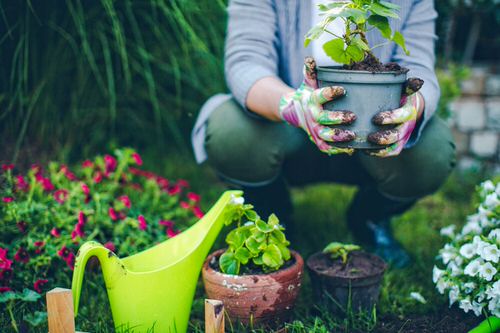
- Stay hydrated, and drink sufficient water before working in the garden.
- Apply sunscreen and wear full-sleeve, light-colored cotton clothes with a hat. Do not forget the gloves!
- Take regular breaks and slow down while doing gardening chores.
- Try to finish heavy gardening duties early in the morning or evening.
- If you’re breathing heavily or feel overheated, go indoors and relax.


